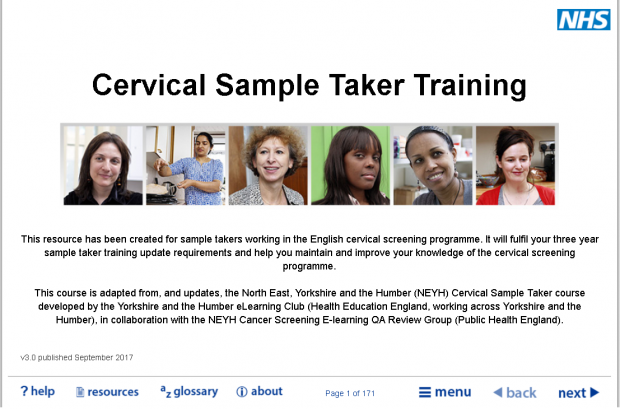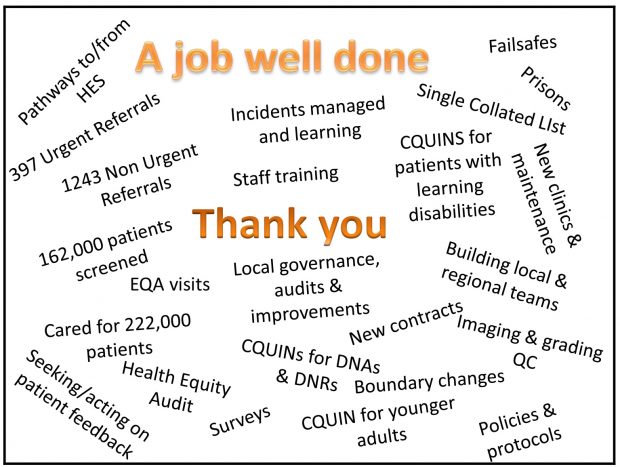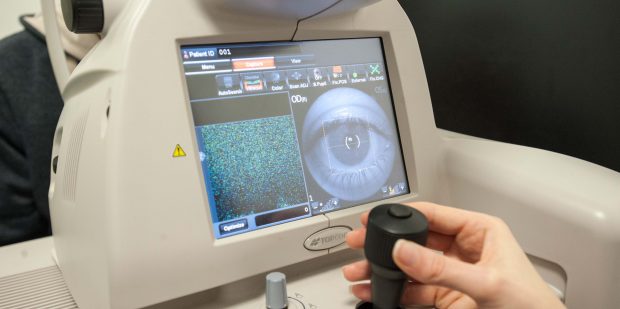Changes ahead for the national screening system
Changes ahead for the national screening system
Details of changes to the national screening system from 1 October, due to the closure of Public Health England.
Details of changes to the national screening system from 1 October, due to the closure of Public Health England.

Today we’ve published – after several years of hard work by many talented people – a large set of resources that can help providers ensure high quality local screening services.

...the new sample taker e-learning resource Where to find the resource The resource is on the e-Learning for Healthcare (e-LfH) website where it sits with our suite of e-learning for...

The 6 Cumbria and North East (CANE) diabetic eye screening services work together to improve services for patients through shared learning, quarterly programme manager networking meetings and a local failsafe officer forum.

The East Lancashire NHS Trust recognised the importance of developing its staff and provided the funding for existing qualified screeners to complete the level 3 diploma for health screeners to further their personal professional development.

This year, on 17 July, I went to Norfolk and Norwich University Hospital (NNUH) for a colonoscopy. For the uninitiated it’s where a highly trained individual sticks a camera up your bottom. Take it from me, it’s really quite painless, …

...ill when they are not) (false positives) what care and treatment to offer babies with other causes of low numbers of white cells how many babies are born in families...

...provide up to date news from all NHS screening programmes. You can register to receive updates direct to your inbox, so there’s no need to keep checking for new blogs....

Blogging is such a good way to open up what different parts of Government are doing and, importantly, to show that Government isn’t a faceless bureaucracy but is made up of people with passion and dedication for what they do.

The latest data shows that diabetic eye screening graders are very good at correctly identifying cases with referable disease, and classifying those cases with no referable disease as not requiring referral.

...often as they need. We will be developing another set of videos that cover the ethnic group section of the report ready for the next data release in January 2018....